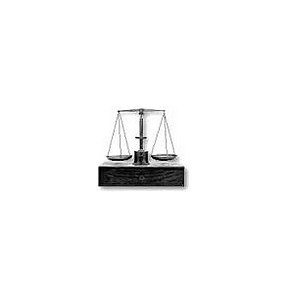Best Defamation Lawyers in Tallinn
Share your needs with us, get contacted by law firms.
Free. Takes 2 min.
List of the best lawyers in Tallinn, Estonia
About Defamation Law in Tallinn, Estonia
Defamation law in Tallinn, Estonia is designed to protect individuals' reputations from false statements that harm their character or standing in the community. Defamation includes both slander (spoken statements) and libel (written or printed statements). If someone has made a defamatory statement about you, it is important to understand your rights and the legal recourse available.
Why You May Need a Lawyer
While defamation cases can be complex, involving legal representation is essential in certain situations. Here are some common scenarios where you may require legal help:
1. Someone has spread false information about you or your business, resulting in damage to your reputation.
2. You have been wrongfully accused of making defamatory statements.
3. A defamatory statement has caused significant financial or professional harm.
4. The defamatory statement was published by a media organization.
5. You received a legal notice or claim related to defamation.
Local Laws Overview
When considering defamation in Tallinn, Estonia, it is important to be acquainted with the following key aspects of local laws:
- Defamation is a civil offense. The injured party can file a civil suit seeking compensation for damages caused by defamation.
- The burden of proof lies with the plaintiff, who must demonstrate that the statement is false, was presented as a fact, and caused harm.
- The defamation claim must be filed within one year of becoming aware of the defamatory statement.
- Estonia recognizes certain defenses against defamation, such as truth, fair comment, and privilege.
Frequently Asked Questions
Q: What damages can be awarded in a defamation lawsuit?
A: In Estonia, the injured party may be awarded compensatory damages to cover both material and non-material harm caused by the defamation. However, punitive damages are not typically granted.
Q: Can a public figure bring a defamation claim in Tallinn?
A: Yes, public figures have the right to bring defamation claims. However, they may face a higher burden of proof as they must demonstrate that the statement was made with "actual malice" or a knowing disregard for the truth.
Q: Is it possible to apologize or retract a defamatory statement to avoid legal action?
A: Yes, an apology or retraction can be considered as a mitigating factor by the court. It may reduce the damages awarded, but it does not absolve the defendant of liability.
Q: Can social media posts be considered defamatory in Tallinn?
A: Yes, defamatory statements made on social media platforms fall under the scope of defamation law. The same legal principles apply, regardless of the medium used to communicate the statement.
Q: Are there any alternative dispute resolution methods for defamation cases in Tallinn?
A: Mediation and settlement negotiations are often encouraged before initiating legal proceedings. Seeking a resolution through alternative dispute resolution methods can help save time and costs, but legal advice is still recommended.
Additional Resources
For further information and assistance regarding defamation in Tallinn, Estonia, you may find the following resources helpful:
- Estonian Bar Association: https://www.advokatuur.ee
- Estonian Courts: https://www.kohus.ee
- Estonian Data Protection Inspectorate: https://www.aki.ee
Next Steps
If you require legal assistance in a defamation matter in Tallinn, Estonia, consider taking the following steps:
1. Consult a qualified defamation lawyer who specializes in Estonian law.
2. Gather any evidence related to the defamatory statement and its impact on your reputation.
3. Cooperate with your lawyer to evaluate the merits of your case and the best course of action.
4. If applicable, consider alternative dispute resolution methods before resorting to litigation.
5. Act promptly, as there is a one-year deadline for filing a defamation claim.
Lawzana helps you find the best lawyers and law firms in Tallinn through a curated and pre-screened list of qualified legal professionals. Our platform offers rankings and detailed profiles of attorneys and law firms, allowing you to compare based on practice areas, including Defamation, experience, and client feedback.
Each profile includes a description of the firm's areas of practice, client reviews, team members and partners, year of establishment, spoken languages, office locations, contact information, social media presence, and any published articles or resources. Most firms on our platform speak English and are experienced in both local and international legal matters.
Get a quote from top-rated law firms in Tallinn, Estonia — quickly, securely, and without unnecessary hassle.
Disclaimer:
The information provided on this page is for general informational purposes only and does not constitute legal advice. While we strive to ensure the accuracy and relevance of the content, legal information may change over time, and interpretations of the law can vary. You should always consult with a qualified legal professional for advice specific to your situation.
We disclaim all liability for actions taken or not taken based on the content of this page. If you believe any information is incorrect or outdated, please contact us, and we will review and update it where appropriate.










